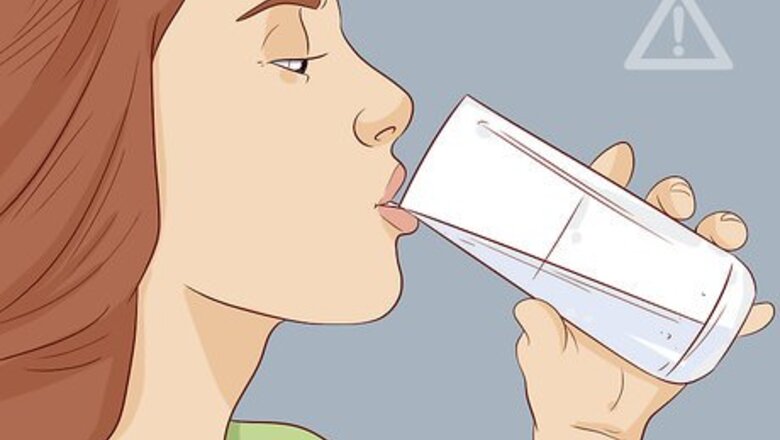
views
Managing the Symptoms of Nighttime UTI Urgency
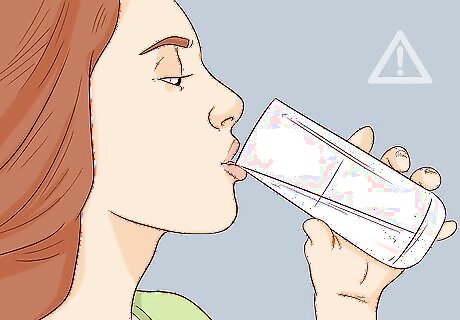
Restrict your fluid intake in the evening. Drinking too much right before bed can increase your urge to urinate during the night. If you can, try to restrict your fluid intake in the hours between dinner and when you go to bed—especially fluids that might aggravate your bladder, such as caffeinated beverages or alcohol. Note: Staying hydrated is important when you have a UTI, so try not to restrict your overall fluid intake. Instead, work on getting your fluids earlier in the day.
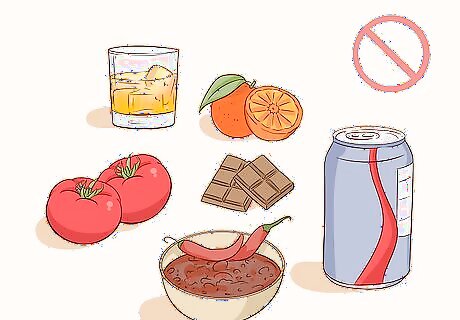
Avoid foods and drinks that might irritate your bladder. When your urinary tract is inflamed, it's important to avoid foods and beverages that can aggravate the problem. You may be able to help keep your urinary urgency under control by limiting or cutting out the following foods and drinks, especially shortly before bed: Caffeinated and carbonated beverages Alcohol Acidic fruits (especially citrus fruits, such as oranges, lemons, and grapefruits) and juices Tomatoes and tomato products Spicy foods Chocolate
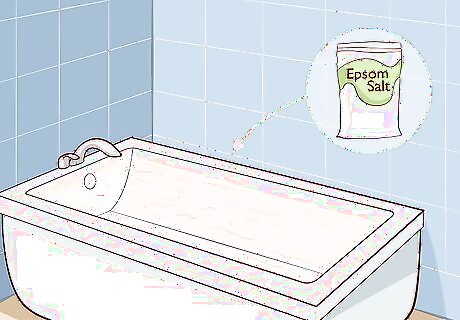
Take a sitz bath right before bed to relieve discomfort. Run a warm bath and add plain, fragrance-free Epsom salt, if you like. Then, soak for about 15-20 minutes just before bed. This should help with your pain and discomfort. Don't use items like bath bombs, bubble bath, or scented bath salts. These products can make your UTI worse.
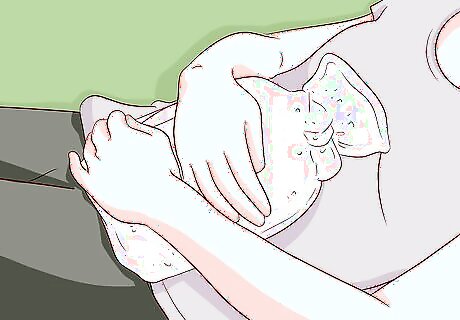
Soothe nighttime pain with a hot water bottle. If bladder pain is keeping you up at night, try sleeping with a hot water bottle against your lower abdomen. Wrap the hot water bottle in a towel to keep it from scalding or burning your skin. While heating pads are a good option for daytime pain relief, it is dangerous to use them while you are sleeping. An unattended heating pad could cause skin burns or even an electrical fire. Ask your doctor if you can safely use over-the-counter pain medications, such as acetaminophen (Tylenol) or ibuprofen (Motrin) for additional nighttime pain relief.
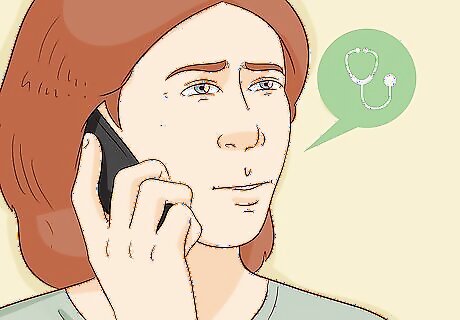
See your doctor to treat the underlying UTI. Proper medical treatment can bring quick relief from your UTI symptoms, including nighttime urinary urgency. If you think you have a UTI, call your doctor or go to an urgent care clinic right away. They will take a sample of your urine to confirm or rule out an infection. Take any antibiotics or other medications as prescribed by your doctor. Depending on the type and severity of your infection, you may need to take antibiotics for a week or more. You will likely begin to feel better within a few days of starting a course of antibiotics, however. Don't stop taking your antibiotics before completing the full prescribed course, even if you feel better. Doing so may cause the infection to return or get worse.
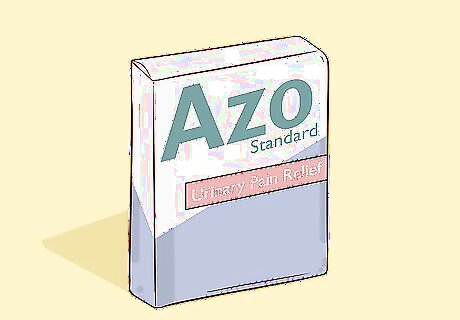
Ask your doctor about medications to relieve bladder spasms. Let your doctor know that your infection is causing urinary urgency that keeps you awake at night. They may be able to prescribe a medication that can relieve the feelings of pain and urgency that are disrupting your sleep. Ask your doctor about taking over-the-counter medications like phenazopyridine or Azo-Standard, which can help relieve bladder spasms, urgency and pain. These medications have few side effects and work for most people, but they will turn your urine red or orange. Be aware that, while these medications may relieve your symptoms, they will not treat the underlying infection.
Dealing with Nighttime Incontinence
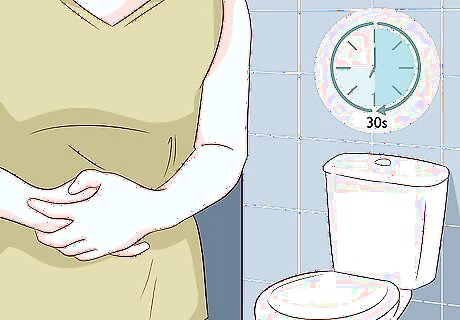
Try double voiding to completely empty your bladder before bed. A UTI can make it difficult for you to empty your bladder all the way, leading to frustration, frequent bathroom trips, and nighttime leaks. Right before you go to bed, sit on the toilet and empty your bladder as much as possible. Remain on the toilet for 30 seconds to a few minutes when you're done, then try again. As you're sitting on the toilet, lean forward slightly and rest your hands on your thighs or knees. Sitting in this position can help you empty your bladder more completely.
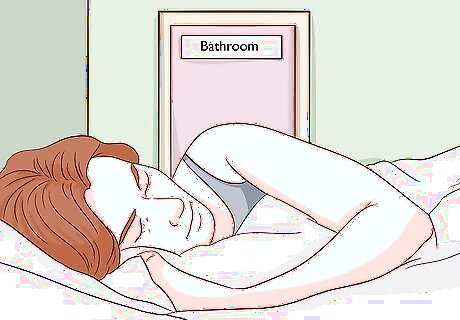
Take scheduled nighttime bathroom breaks. Set an alarm to wake you up every 2-4 hours so you can urinate. This will help keep your bladder from becoming overly full, making it less likely that you will wake up with a wet bed or a frantic urge to go. Try setting the alarm to go off at different times each night. This way, you won't inadvertently train your bladder to wake you up at specific times to pee.
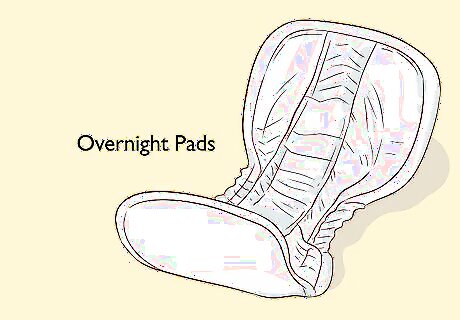
Wear a pad at night to avoid soaking your bedclothes. If your UTI causes your bladder to leak at night, having to strip and change your bedclothes can be very disruptive to your sleep. Try wearing an incontinence pad to keep accidents contained and easier to deal with quickly. Absorbent briefs are another good option. These special undergarments are fitted to prevent leaks. It's best to wear clean cotton underwear, which are breathable.
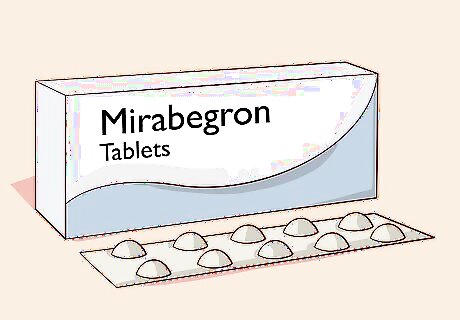
Ask your doctor about medications to control incontinence. Your doctor may also be able to prescribe a medication to keep nighttime incontinence under control while your UTI heals. Talk to your doctor about what medication(s) might work best for you. Common options include anticholinergics, bladder-relaxing medications such as mirabegron, and alpha blockers. Ask your doctor about fesoterodine, a medication that has been shown to improve both nighttime incontinence problems and overall sleep quality.




















Comments
0 comment